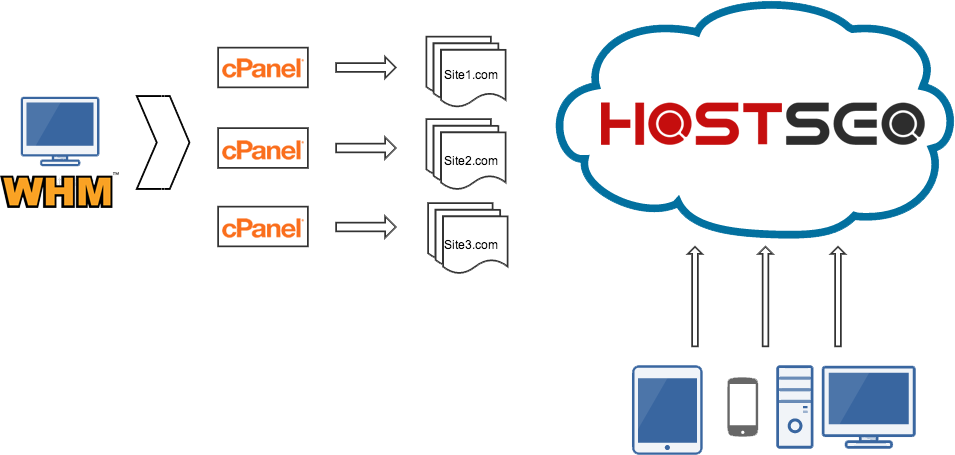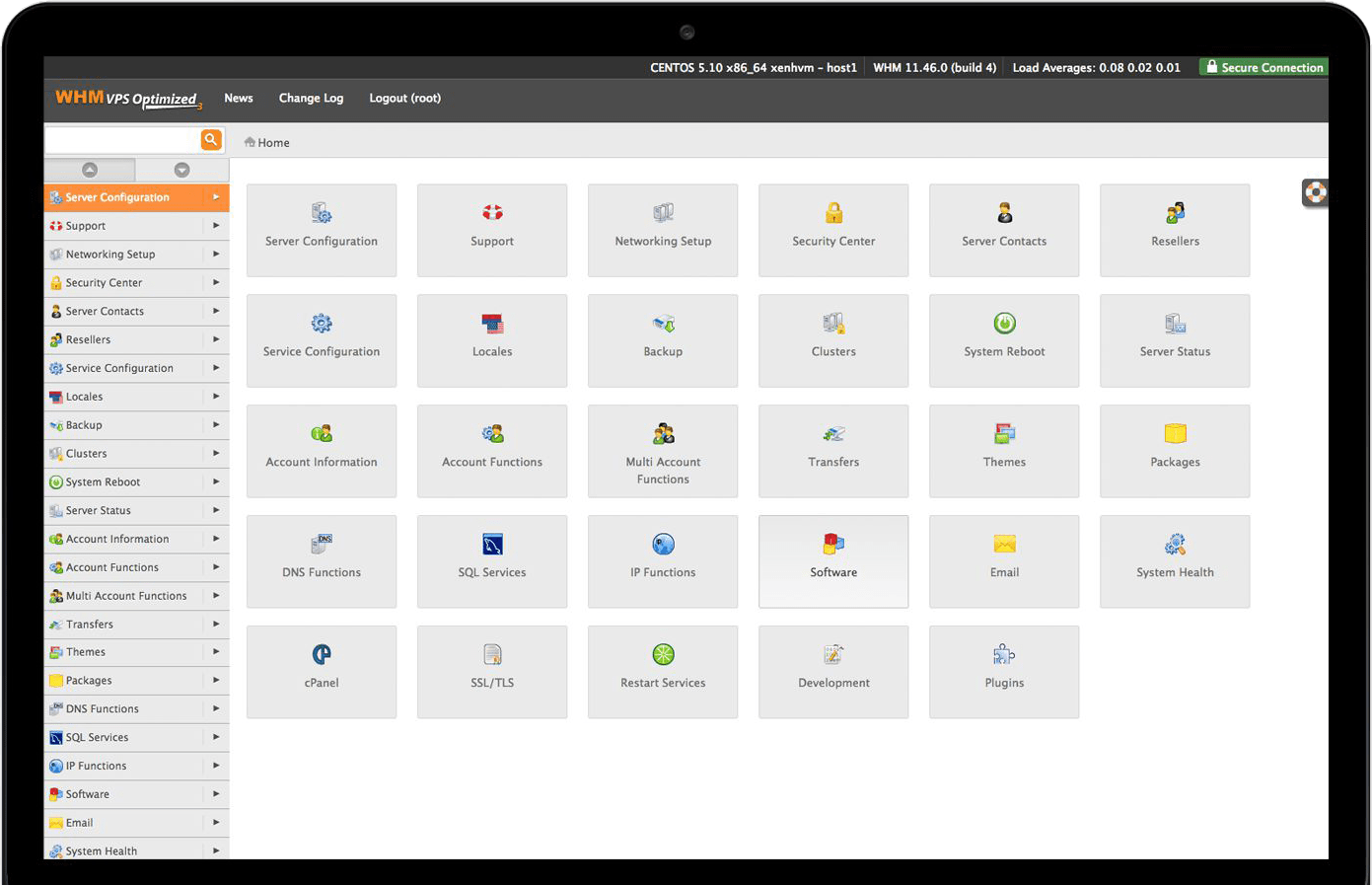An Introduction To Web Host Manager (WHM)
- Category : cPanel Tutorials
- Posted on : Jul 30, 2016
- Views : 3,745
- By : Naftali P.

Web Host Manager
If you’ve ever purchased web hosting in the past, it’s likely you’re already familiar with cPanel. This is one of the most-widely used web-based control panels in the hosting industry today. Companies that don’t use this often find themselves at a tremendous disadvantage as a lot of customers are already familiar with it.
Back in the late nineties/early 2000s, it became the “cool thing” to develop your own control panel. Web Hosting companies invested millions hiring researchers, developers, and project managers to develop the most “user-friendly” control panel. Unfortunately, while they dumped all their resources into this, other companies began to quickly implement cPanel and Web Host Manager.
This led to those companies being able to spend their extra profits on more marketing and advertising, taking over the industry as a whole. Therefore once the “other” companies were finished with their fancy control panels, they found themselves without a lot of their original customers.
I would say that 9 out of every 10 customers that come to us here at Host SEO are already somewhat familiar with cPanel. We even have lots of migration requests each week to help customers move from not-cPanel web hosts. They want the flexibility it offers, they like the interface, and it has become a “must have” tool in this industry.
While most everyone is familiar with cPanel, some are not familiar with Web Host Manager:

Basically, you should look at Web Host Manager like cPanel’s father. A website cannot have its own cPanel unless it’s the first setup through Web Host Manager. Web Host Manager is the “master control panel” that provisions and sets up all the “sub-control panels” or cPanels.
When you purchase a reseller hosting account from us here at Host SEO, you automatically receive a “master” Web Host Manager account that is unique to your business.
You will use this tool to setup all of your customers, and if you want to automate your billing, you will use automated billing software such as WHMCS to set this up for you.
Categories
- cPanel Question 47
- cPanel Software Management 29
- cPanel Tutorials 13
- Development 29
- Domain 13
- General 19
- Linux Helpline (Easy Guide) 156
- Marketing 47
- MySQL Question 13
- News 2
- PHP Configuration 14
- SEO 4
- SEO 42
- Server Administration 84
- SSL Installation 54
- Tips and Tricks 24
- VPS 3
- Web Hosting 44
- Website Security 22
- WHM questions 13
- WordPress 148
Subscribe Now
10,000 successful online businessmen like to have our content directly delivered to their inbox. Subscribe to our newsletter!Archive Calendar
| Sat | Sun | Mon | Tue | Wed | Thu | Fri |
|---|---|---|---|---|---|---|
| 1 | 2 | 3 | 4 | 5 | 6 | |
| 7 | 8 | 9 | 10 | 11 | 12 | 13 |
| 14 | 15 | 16 | 17 | 18 | 19 | 20 |
| 21 | 22 | 23 | 24 | 25 | 26 | 27 |
| 28 | ||||||
Recent Articles
-

Posted on : Sep 17
-

Posted on : Sep 10
-

Posted on : Aug 04
-

Posted on : Apr 01
Tags
- ts
- myisam
- vpn
- sql
- process
- kill
- tweak
- server load
- attack
- ddos mitigation
- Knowledge
- layer 7
- ddos
- webmail
- DMARC
- Development
- nginx
- seo vpn
- Hosting Security
- wireguard
- innodb
- exim
- smtp relay
- smtp
- VPS Hosting
- cpulimit
- Plesk
- Comparison
- cpu
- encryption
- WHM
- xampp
- sysstat
- optimize
- cheap vpn
- php-fpm
- mariadb
- apache
- Small Business
- Error
- Networking
- VPS
- SSD Hosting
- Link Building
- centos
- DNS
- optimization
- ubuntu







